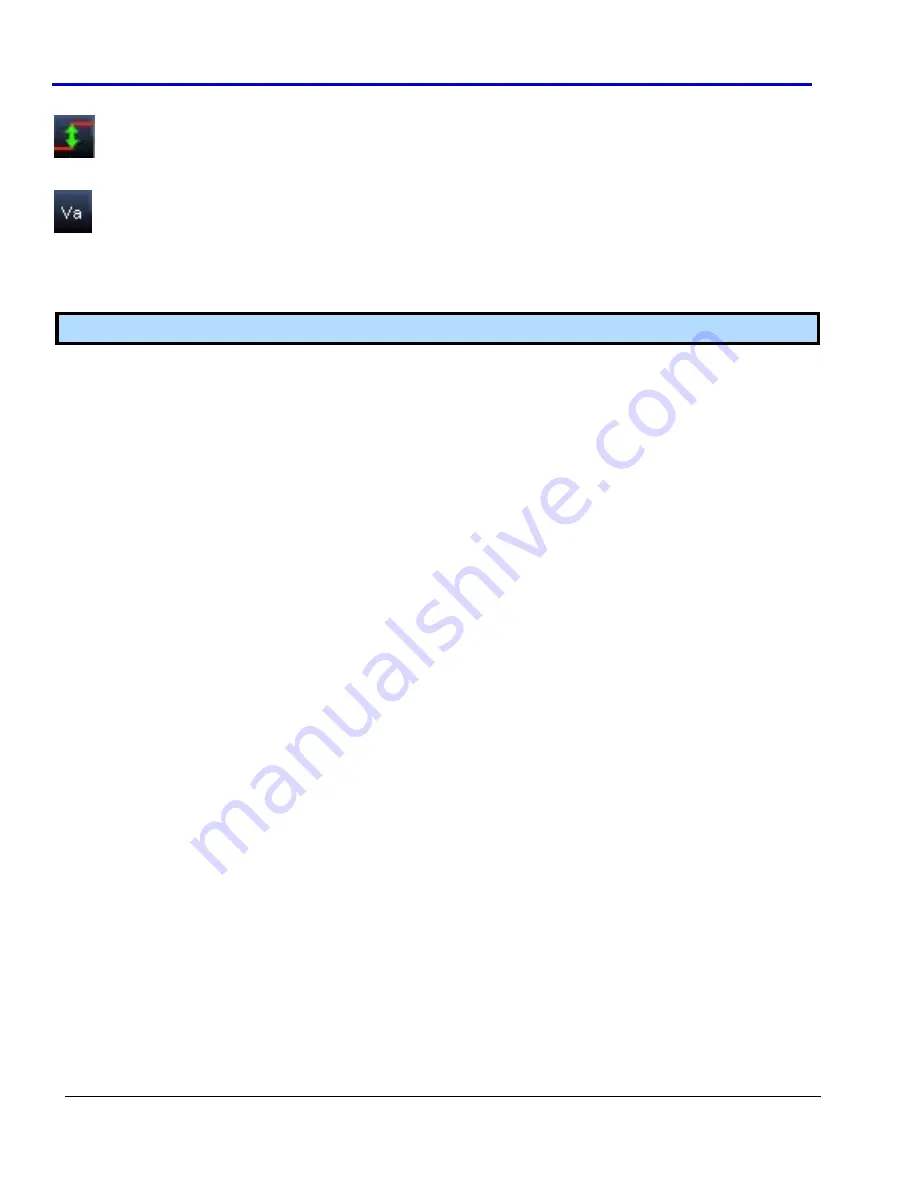
ArbStudio
84
918221
RevA
Any
edge
Va
(Bus
HEX)
Sets
a
bus
at
the
hexadecimal
value
entered
in
the
field
adjacent
(to
the
right).
Set
the
state
on
a
channel
by
first
selecting
condition
A
or
B
of
the
desired
level,
and
then
clicking
on
the
corresponding
channel
row
to
be
set
on
the
right
side
listing.
Note
:
The
column
Signal
Names
contains
the
user
‐
defined
names
for
the
signals
to
acquire.
Set
a
condition
by
clicking
the
desired
button
on
the
top.
If
more
than
one
signal
is
selected,
the
same
level
or
edge
setting
is
applied
to
the
group
of
signals.
You
can
also
set
a
level
on
all
selected
signals
by
writing
its
value
in
hexadecimal
format
in
the
HEX
field,
and
then
clicking
the
Va
button.
C
ONDITIONS
ON
EDGES
You
can
indicate
whether
the
trigger
condition
must
be
detected
on
a
rising,
falling,
or
either
edge
for
each
signal.
When
trigger
conditions
are
set
on
edges
of
several
signals,
the
trigger
event
is
determined
by
the
occurrence
of
at
least
one
condition.
If
no
trigger
conditions
on
edges
are
set
for
any
signals,
trigger
events
on
edges
never
occur.
C
ONDITIONS
ON
LOGIC
LEVELS
You
can
indicate
whether
the
trigger
condition
must
be
detected
on
a
high
or
low
logic
level
for
each
signal.
When
trigger
conditions
are
set
on
logic
levels
of
several
signals,
the
trigger
event
is
determined
by
the
occurrence
of
all
conditions
simultaneously.
If
no
trigger
conditions
on
logic
levels
are
set
for
any
signal,
the
trigger
conditions
on
logic
levels
are
always
considered
verified.
The
trigger
condition
set
on
logic
levels
is
useful
when
the
trigger
event
must
be
detected
for
a
specific
pattern.
Use
the
Level
Condition
drop
‐
down
field
to
select
among
the
following
conditions
for
trigger
events
on
logic
levels:
•
Trigger
when
EQUAL
‐
The
trigger
event
occurs
when
the
state
of
the
evaluated
signals
is
equal
to
the
specified
pattern.
•
Trigger
when
NOT
EQUAL
‐
The
trigger
event
occurs
when
the
state
of
the
evaluated
signals
is
different
from
the
specified
pattern.
•
Trigger
when
CHANGED
‐
The
signals
selected
for
a
trigger
event
on
logic
levels
are
examined
when
data
acquisition
starts.
These
sampled
values
constitute
the
reference
pattern.
The
trigger
event
occurs
when
the
state
of
the
selected
signals
is
different
from
the
reference
pattern.
The
conditions
chosen
by
the
user
on
logic
levels
are
ignored.
ArbStudio
uses
the
information
related
to
channels
for
trigger
detection.
















































